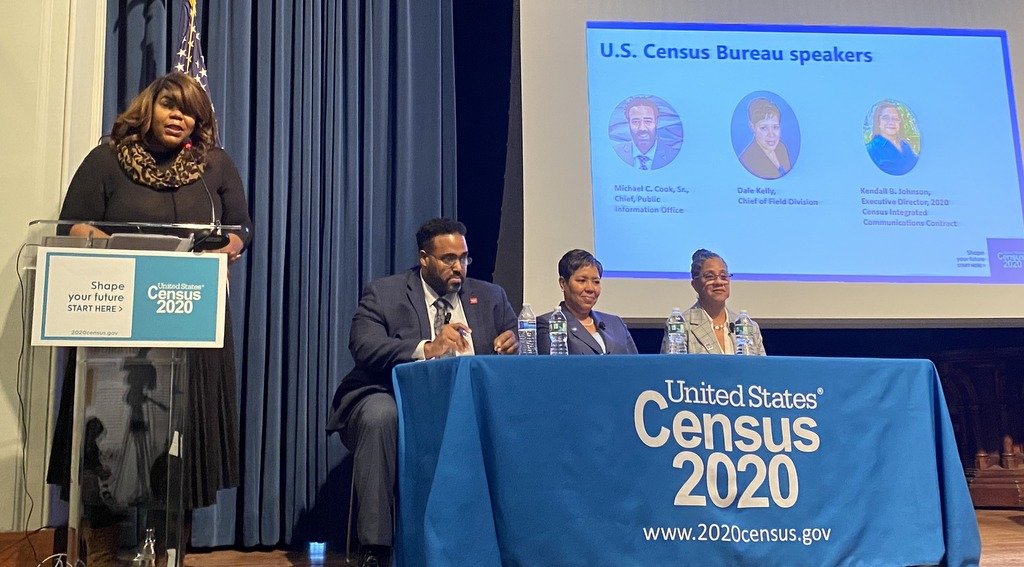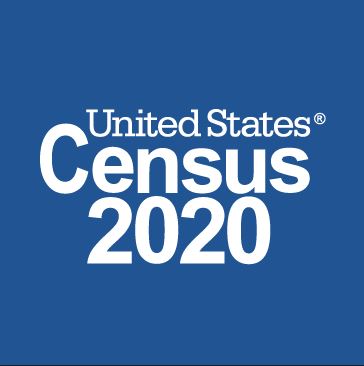[ad_1]
By Micha Green
AFRO D.C. Editor
[email protected]
In about a week U.S. residents will begin getting invitations to complete the 2020 U.S. Census and as a rallying factor national and local teams alike are working to get the message out that “everyone living in the United States should be counted,” according to the U.S. Census Bureau’s Chief of Field Division Dale Kelly. On March 3, the U.S. Census and its trusted voices and partners teamed up for an informational press conference targeting Black communities at the African American Civil War Museum in Washington, D.C.
“Not only is America, the country, diverse, but the campaign is diverse and it’s structured that way,” said the U.S. Census Bureau’s Chief Public Information Officer Michael Cook Sr.

In an hour-long session, six speakers shared the importance of the 2020 Census and particularly its effect on Black communities. The United States Census 2020 theme is “Shape your future; START HERE,” in order to emphasize the importance of how being counted can directly affect residents.
“The community services, social services that are used behind our statistics are invaluable,” Cook explained.
When people and communities are undercounted federal funding is lost towards programming such as Medicare, Medicaid, SNAP, Pell Grants, housing assistance and Head Start.
Local leaders such as D.C. Mayor Muriel Bowser and Prince George’s County Executive Angela Alsobrooks have been openly raising awareness and emphasizing the importance of their districts having a complete count.

According to the D.C. Policy Center, the nation’s capital had the second highest share of residents missed among major U.S. cities in 2010, with 2.2 percent of District residents not counted. In January, the AFRO reported that Alsobrooks estimated the 2010 under reporting of Prince George’s residents cost the County over $360 million in federal funding that would have helped subsidize services such as Medicare, transportation and special education.
The fear of undercounting has allowed for the creation of jobs and opportunities getting a complete count.
Melissa Bird, executive director of District Census 2020, said Mayor Bowser created her position early on in order to ensure that D.C. residents were completely counted. With Bird’s work and the help of her team, more than 1,000 District residents are on the ground preaching the importance of completing the Census.
“I think our real success… is really building our on the ground ambassadors,” Bird said. “To date we have trained over 1100 residents to serve as Census ambassadors.”
The Census teams and ambassadors are not only working to help residents understand the importance of being counted, but also that it is safe and simple to participate in the counting process.
“It’s safe, it’s easy and it matters,” Bird said.
Undercounting, according to research from the U.S. Census Bureau and its trusted partnerships, is a result of many factors regarding fear and concern in communities of color.
Austin Patrick, a strategist with Y&R one of the trusted partners working with the U.S. Census Bureau, explained how communities of color do not necessarily buy into the idea that being counted is part of their “civic duty.” With fears regarding safety, confidentiality and whether or not anything will even change from the count, much of the marketing materials being disseminated to Black communities emphasizes the importance of counting everyone and clarifies that the information cannot adversely affect those who fill out the form.
Further, communities of color also face concerns regarding citizenship and language barriers, when filling out the Census.
“There is no question on the form related to citizenship,” Kelly said. “The online questionnaire is available in 13 languages, including French and Haitian Creole. These 13 languages represent the languages spoken in 95 percent of the households in the country,” she added.
On March 12, the Census 2020 invitations will be sent out, and residents can complete them online, by phone or mail.
April 1, Census Day, is the key reference date for the 2020 Census, which will allow for any residents living in one’s home by that date, including infants, to be counted.
As the national and local teams gear up, the U.S. Census 2020 is still looking to hire people to ensure that everyone is counted, and encourages residents to apply at www.2020census.gov/jobs.
For more information on the U.S. Census 2020 visit www.2020census.gov.
[ad_2]
Source link
